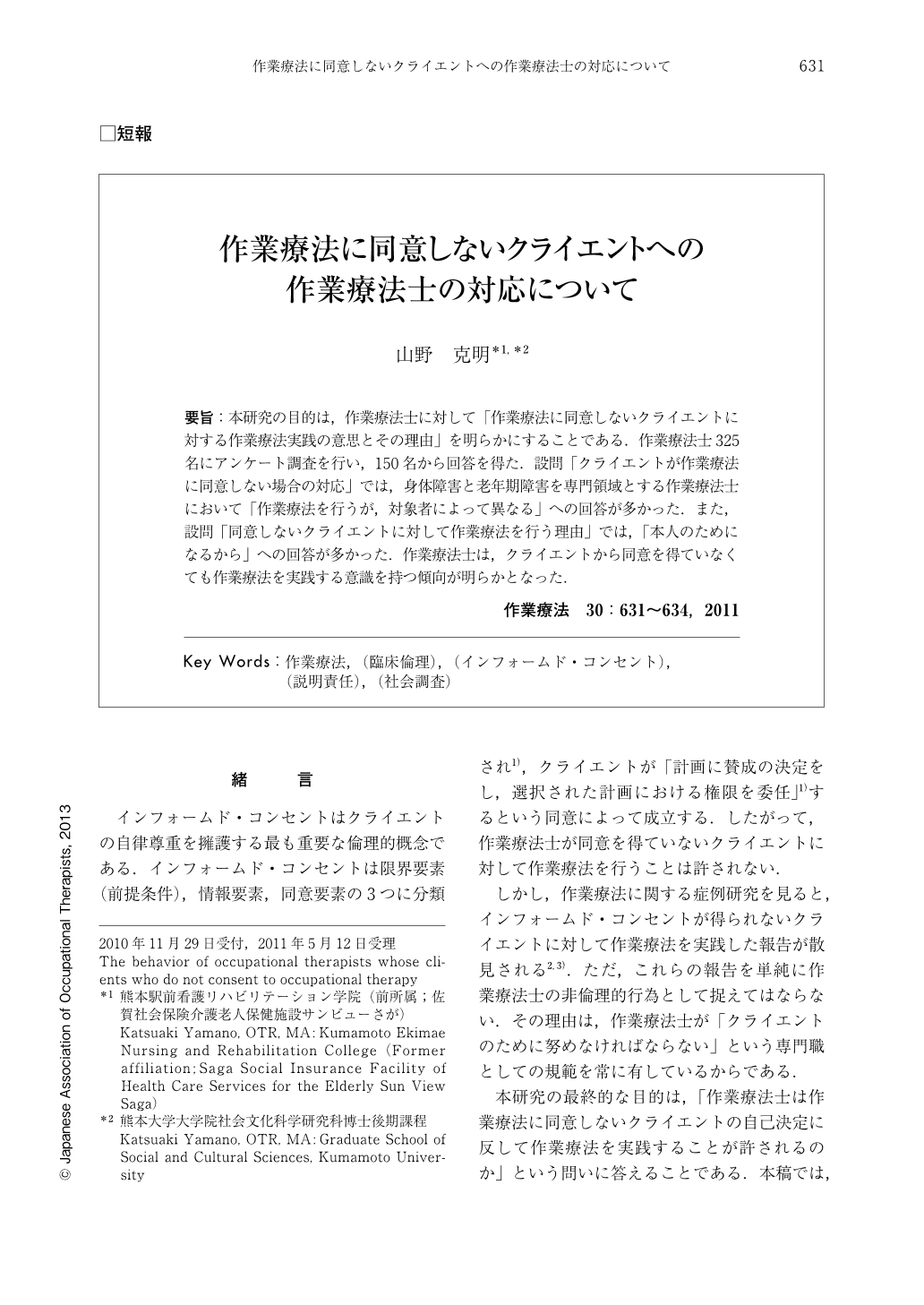Japanese
English
- 販売していません
- Abstract 文献概要
- 1ページ目 Look Inside
- 参考文献 Reference
- サイト内被引用 Cited by
要旨:本研究の目的は,作業療法士に対して「作業療法に同意しないクライエントに対する作業療法実践の意思とその理由」を明らかにすることである.作業療法士325名にアンケート調査を行い,150名から回答を得た.設問「クライエントが作業療法に同意しない場合の対応」では,身体障害と老年期障害を専門領域とする作業療法士において「作業療法を行うが,対象者によって異なる」への回答が多かった.また,設問「同意しないクライエントに対して作業療法を行う理由」では,「本人のためになるから」への回答が多かった.作業療法士は,クライエントから同意を得ていなくても作業療法を実践する意識を持つ傾向が明らかとなった.
The purpose of this study is to clarify for occupational therapists the decision for and the reason behind clients who do not consent to occupational therapy. We sent surveys to 325 occupational therapists, and received answers from 150 therapists. Regarding the question of whether or not they would conduct occupational therapy without a client's consent, those occupational therapists who specialize in physical dysfunction or geriatric disabilities answered “I may practice occupational therapy on a case by case basis”. When asked the reason why they practice occupational therapy even though clients don't consent, the highest number of therapists answered because it's for the “client's own good”. The results clarified that they tend to have the intention to practice occupational therapy for whose clients who do not consent to it.

Copyright © 2011, Japanese Association of Occupational Therapists. All rights reserved.


